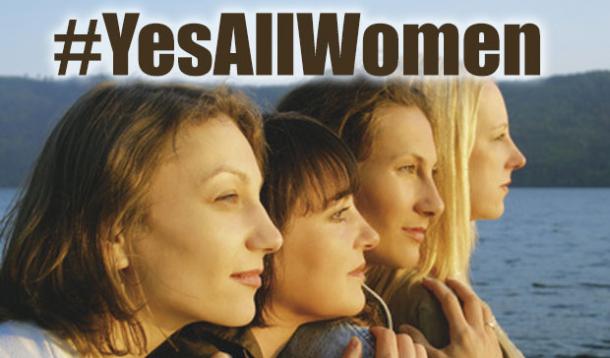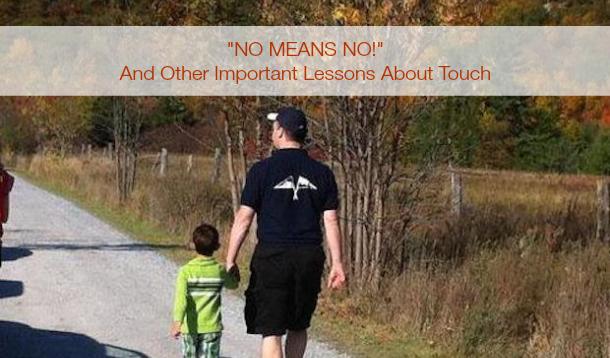
This past Friday, a man named Elliot Rodger stabbed and shot 13 people in Isla Vista, California. Six of his victims died. Rodger is also dead of a gunshot wound to the head—self inflicted, according to the last reports I heard.
By now, certain details are common knowledge. We know Rodger’s parents were concerned enough about their son’s behaviour to have alerted police. We know that he was a Men’s Rights activist, engaged in Pick Up Artist subculture. We know that prior to his killing spree, he left a chilling YouTube video about why he felt entitled to slaughter members of his community—women in particular.
Tomorrow is the day of retribution, the day in which I will have my revenge against humanity, against all of you. For the last eight years of my life, ever since I hit puberty, I've been forced to endure an existence of loneliness, rejection and unfulfilled desires all because girls have never been attracted to me. Girls gave their affection, and sex and love to other men but never to me.
Rodger’s sense of entitlement and his vicious actions are the culmination of so many things that are broken in our society. My thoughts are overwhelming me. I can’t write everything I’m thinking and, fortunately, I don’t have to. Good people are saying some of the really important stuff that needs to be said about why we can't dismiss this as an isolated incident of violence, why we need to talk to our children, and why men care should care about these issues too.
I wanted to write a very professional piece about some of the troublesome ideas that persist about sexuality in our culture, and how they can lead to the type of violence we saw last Friday. But I started writing and quickly realized that this is personal for me. So, I’m gonna take off my sex educator hat for this post and just tell you how I feel.
When the news broke on Friday, it took me back almost 25 years. December 6th, 1989. That day, I came home from school, turned on the television, and learned that a man fuelled by misogynistic rage had gunned down 14 women at at Ecole Polytechnique in Montreal. It happened so close—just a few hours' drive from where I lived—and it forever changed how I saw my place in the world.
I was fourteen years old. The recent changes in my body had brought about litany of warnings from the loved ones in my life. People kept telling me I needed to be cautious now, especially around men. I didn’t believe them. Just because I now had breasts and curvier hips didn’t mean I was in danger. The notion that I could inadvertently trigger the rage and retribution of a man by simply being a woman seemed ridiculous. Then the Montreal Massacre happened...and I understood.
From that day forward, I began to consider the threat of violence in the simple choices I made in my day-to-day life. It wasn’t long after the Montreal shootings that I started experiencing some of the unwanted attention I’d been warned about. I learned quickly how to modify the way I moved through the world and began making choices based on what I thought would keep me safe. I learned fast and eventually it became normal.
I am used to the constant threat of misogynistic violence and harassment in my life. Here are some of the “normal” ways it influences my everyday life:
I’m not the only woman who lives this way. If you haven’t yet, go to Twitter and check out #YesAllWomen. This is normal life for us, because we live in a culture that teaches us that violence against women is an inevitable, natural part of the social ecosystem.
Women are constantly subjected to the spectrum of oppressive behaviour that ranges from intrusive pick-up lines to violent rape and murder. We’re taught that it’s just part of the ecosystem, like rain in spring. We’re told that, of course, it’s unfortunate and, of course, we have a theoretical right to not be harmed, but no one can do anything about the crazy people out there and the reality is that our bodies, our actions, our very existence will set people off.
I’m tired of being told there’s nothing that can be done. This is NOT okay! I’m not asking for extraordinary feats of world peace. I’m not expecting a world that’s free of violence. All I want is acknowledgement that I am a person. That my fellow women are people. That doing regular people things, like having breasts and wearing clothes and going places, should not be considered risky, but they are and that’s a sign that things are seriously messed up in our culture. It is NOT just the way things are!
Our music, our movies, our stories tell us that love is about conquest. They tell us that when a man doggedly pursues a woman, that she’ll graciously and happily give in, because that’s how love works. We teach people that sex is like a possession that men desire voraciously and women give reluctantly. Real men always try to get laid. Nice girls hold out. A man who doesn’t pursue an unpartnered woman sexually is weak. A woman who extends friendship to a man isn’t giving him a chance at a valuable relationship, she’s putting him in an emasculating zone.
No, not everyone who believes these things is going on killing sprees. Most don’t. But these are just some of the pervasive ideas that form the foundation of gender-based violence/harassment. I, and every woman I know, have to live with the consequences of these ideas.
On Friday, I turned on my phone and saw that a man, fueled by misogynistic rage, had slaughtered 13 people in Isla Vista. Again, it was so close—just a few hours' drive from where I sit now. It confirmed my understanding of my place in the world. And it makes me so damn angry.
This morning, The Man of Mans asked me what I thought it would look like if things were different. I don’t think violence can be abolished—not entirely. But I would settle for a society that acknowledges that misogyny affects the lives of women in a brutally unfair way.
I would be thrilled if every public display of entitled behaviour were met with unanimous side-eye and outraged cries of, “Hey man, that is NOT COOL!” I would love if the response to women who are harassed and harmed was a simple, “I’m sorry. You didn’t deserve it. What can I do to help?”
I’d like to conclude by extending my deep, deep sympathy to the Isla Vista Community, especially those who were wounded and those who lost the people they loved. I’m sorry. You didn’t deserve this.
No one does.
For more on #YesAllWomen, check out: "#YesAllMen Should Care About #YesAllWomen," and "Why You Must Share #YesAllWomen With Your Sons."

My son (known in Internetland as “The Bean”), loves being tickled by his dad and me. Lately when we approach him with our wiggly fingers, he jumps up at the last minute and runs away.
“You can’t get me,” he singsongs. The light in his eyes and the giggles that escape his lips as he ducks out of reach make us suspect that the thrill of a possible chase on enhances his enjoyment of our game. But it gave my husband pause. Like we literally stopped the tickling for a moment. Not because anything was wrong. It’s because we have rules in our house about touching and consent.
We’re a very affectionate family. We kiss, we hug, we snuggle, we hold hands, we roughhouse, and tickle. A lot.
We also ask permission...a lot.
This morning The Bean came into our room while my husband (he’s known in Internetland as The Man of Mans) and I were still in bed.
“Do you want to climb in?” The MoMs asked. This morning The Bean said yes. Sometimes he says no. A couple of weeks ago, he totally rejected my request for an after school hug. Apparently it would have seriously diminished his school-yard cred. And I didn’t hug him, because in our family — emergencies notwithstanding — no means you don’t get to touch that person. Later The Bean asked to sit in my lap later that evening while we read a book and I got some wonderful, snuggly time with my boy.
I want The Bean to have lots of practice asking for consent, giving consent and refusing consent. I want him to learn how to say the words and how to respect the words of others. But I also want him to develop an awareness of non-verbal consent cues. Which is why The MoMs and I had to cease and desist tickling when The Bean evaded us.
People don’t always say they don’t want to be touched. But they cringe, duck, cower, or go limp in ways that indicated they aren’t enjoying being touched. And I admit that from a parenting perspective this isn’t always a straightforward issue. For example, The Bean never likes having his skinned knees cleaned or getting shots at the doctor and we do those things to him anyway. But we try to respect the non-verbal cues wherever we can. Consent to touch needs to be sincere. I want The Bean to understand that just because he thinks someone is okay with what he’s doing, he can’t know unless he checks in.
In the case of the tickle fight, The MoMs and checked in. We asked The Bean if he wanted us to stop tickling him.
“No!” he cried happily, “I want you to try and get me.”
“But you said ‘no’,” The MoMs reminded him.
“I’m just pretending!”
It felt like a teachable moment. I thought for a moment and asked, “So, you’re just pretending that you don’t want to be tickled? You want that to be part of the game?”
“Yes,” he said emphatically.
“Okay, we can do that. But maybe you can think of a special word that you will say if you actually want us to stop tickling, so that we know you really mean it.”
I asked The Bean. He says I’m not allowed to share his special word with you folks in Internetland. But there is one. And since its introduction tickle fights in this family have gone to the next level!
The Bean is just a little person, but eventually he will grow up. At some point he may want to have sex with someone and if he does, I want him to rock at consent. Because when it comes to sex, consent is everything. It’s always possible and it’s always necessary. I want him to assert his sexual boundaries like it ain’t no thang. I want him to hear a sexual partner tell him “no” and accept it like a champ. I want to ingrain the habit of asking permission to touch, of checking in to make sure it feels good, so that when he grows up, consent is a normal part of his sexual routine.
Our bodies belong to us. They’re where we live. Sharing our bodies with one another promotes affection, intimacy, pleasure and security. But no one is entitled to trespass on the body of another person. And no one forfeits their right to decide how and when they want to be touched. These are lessons I need my son to learn. Touch can be a very good thing...especially when we ask first.
Here's another important lessons kids need to learn about sex. And get the cherry popin' facts about the hymen!